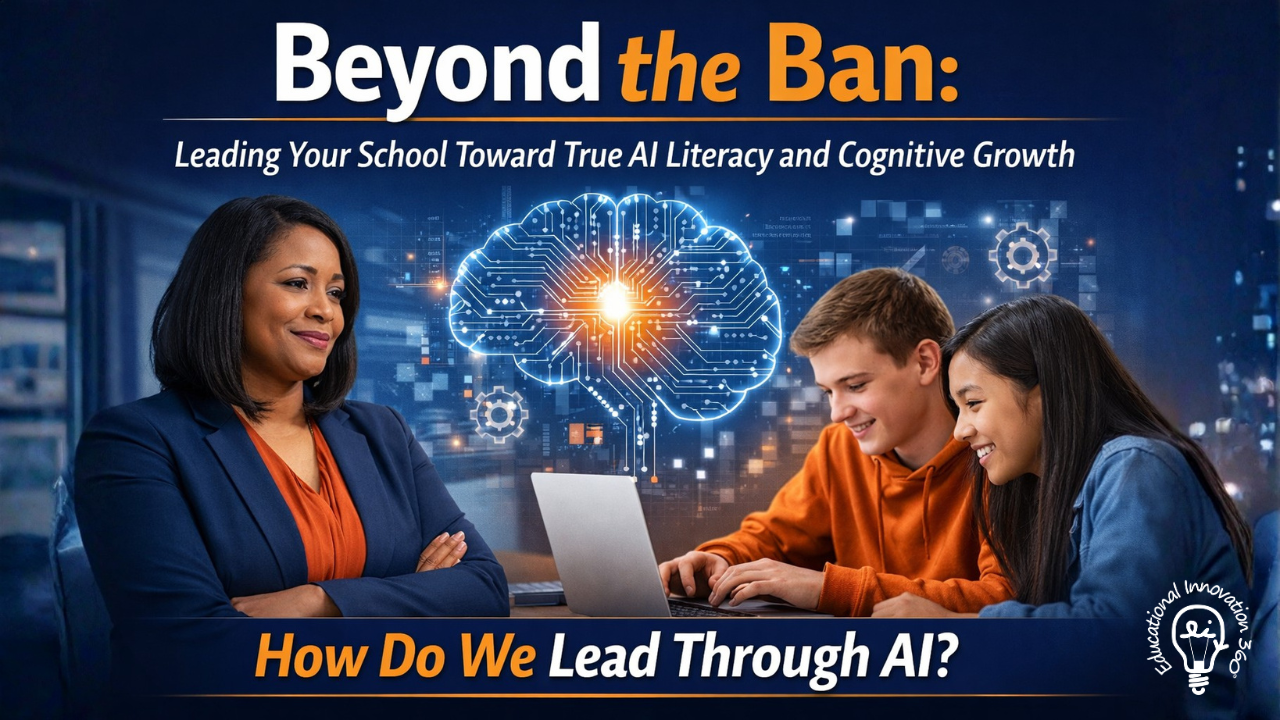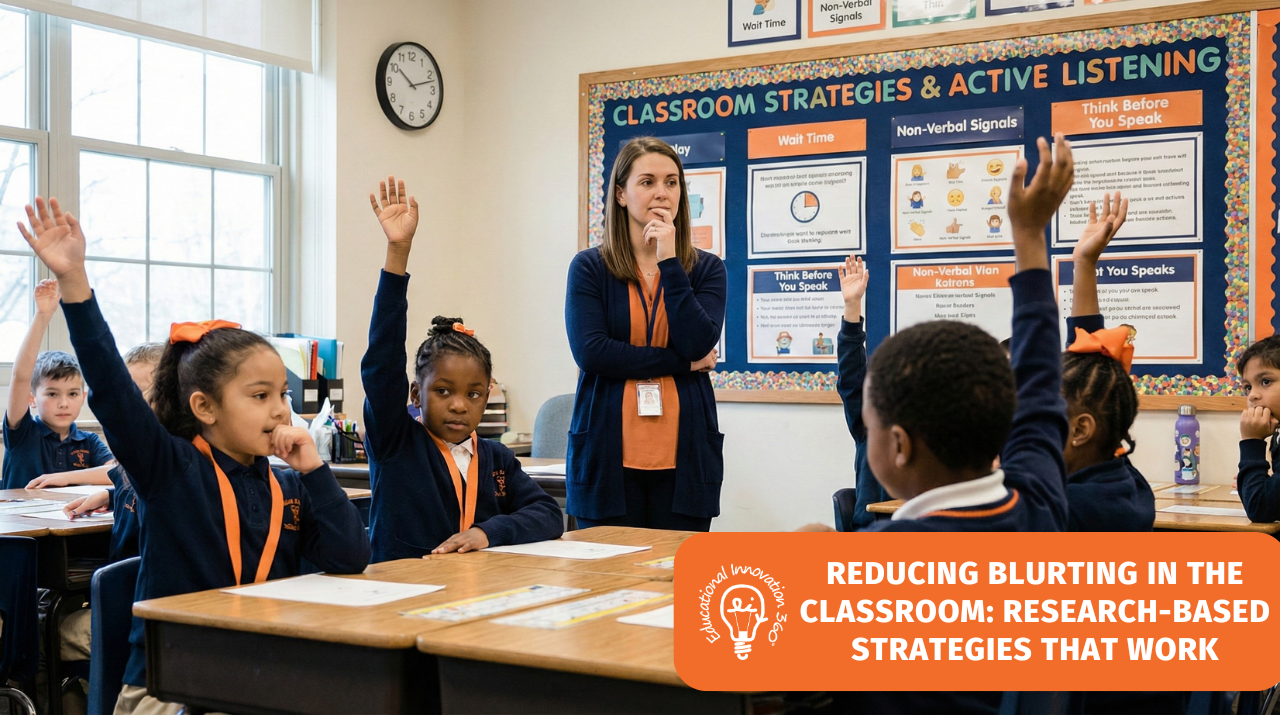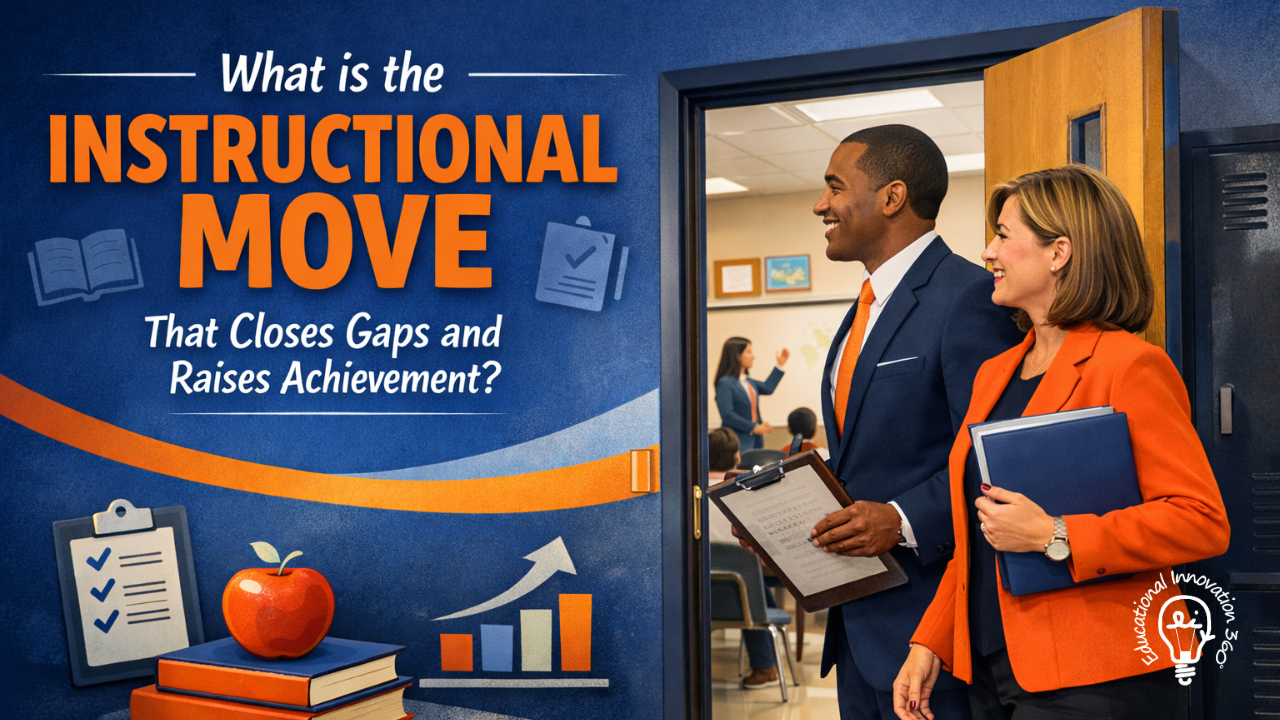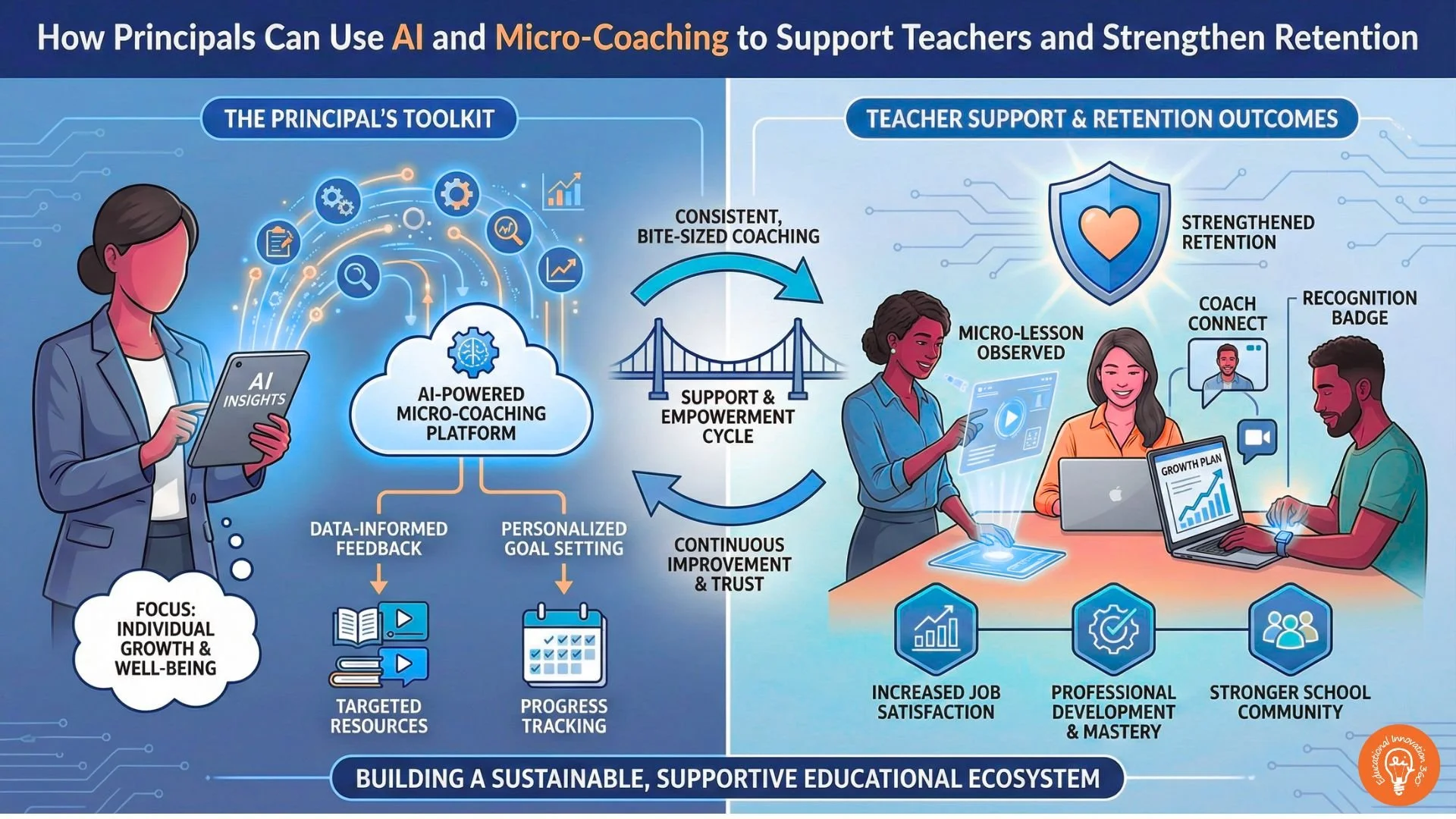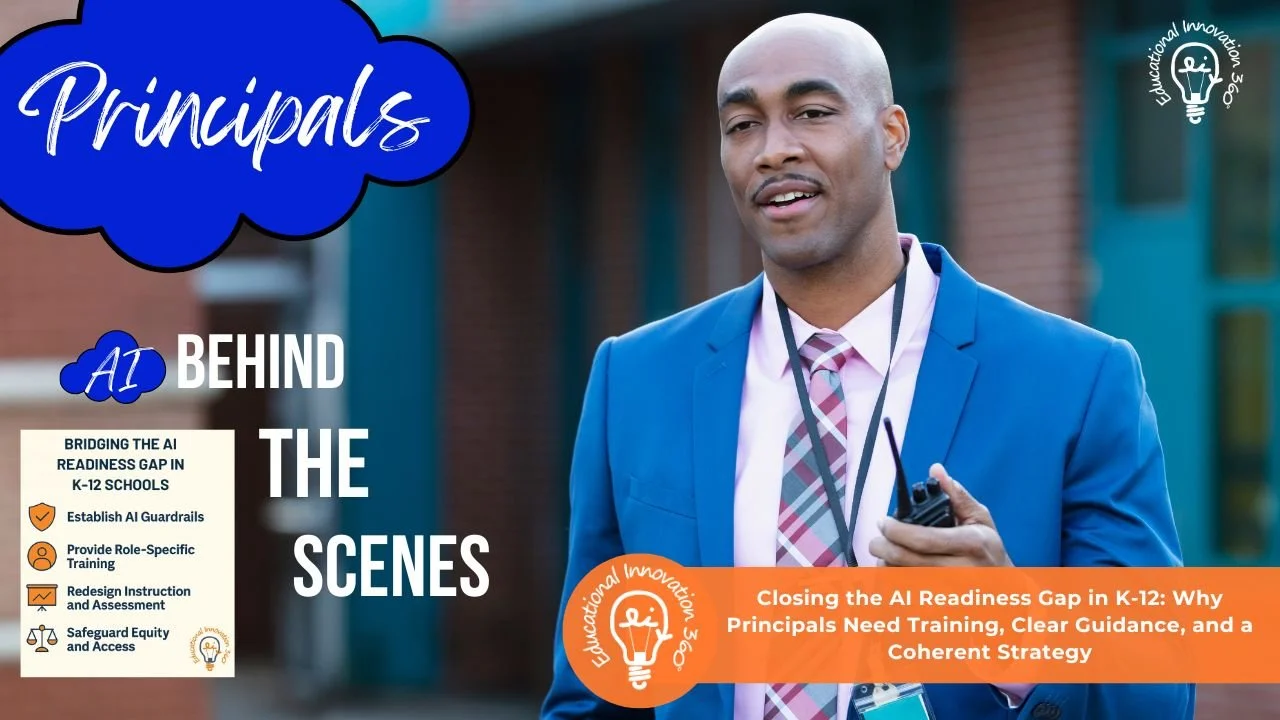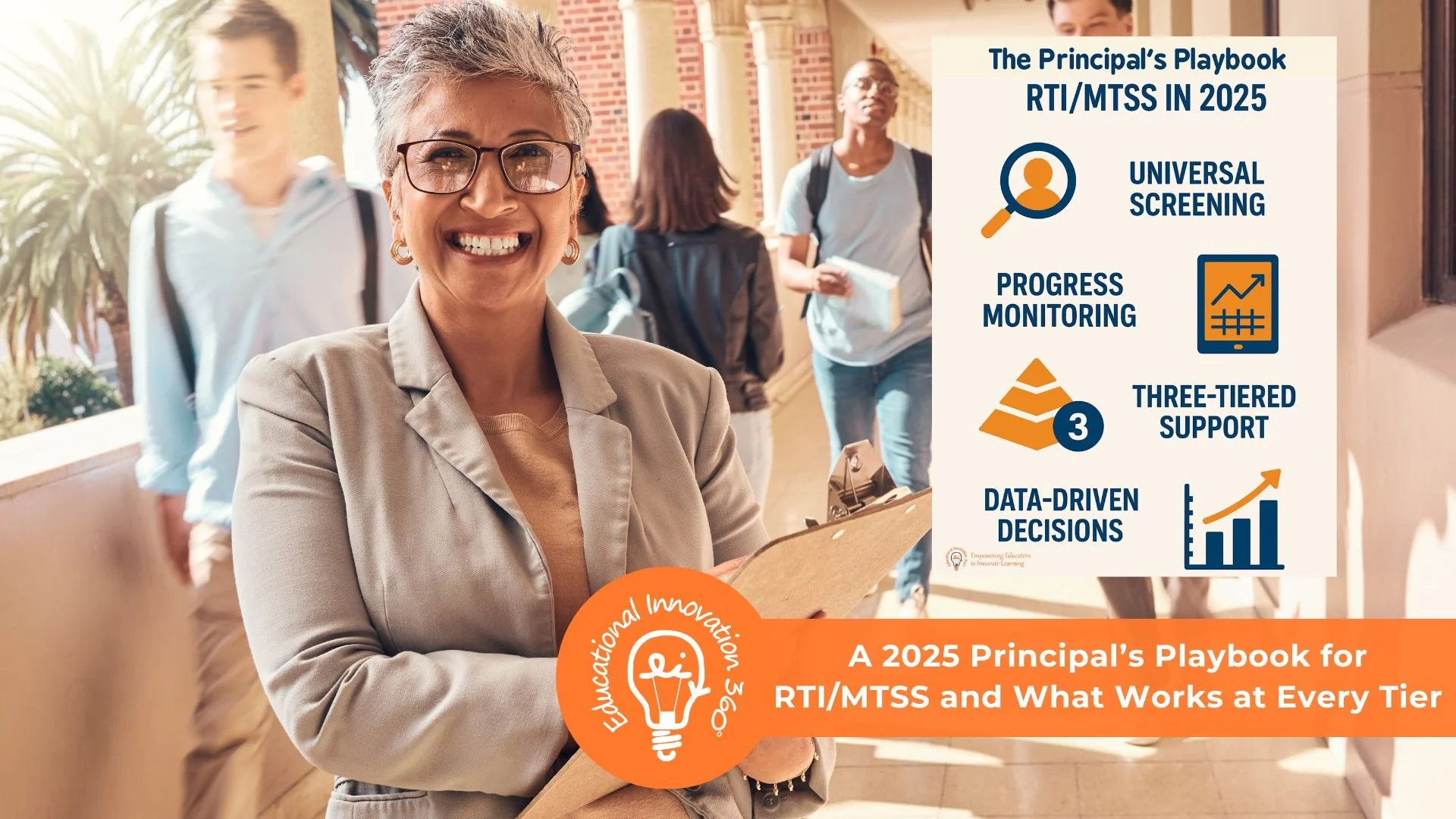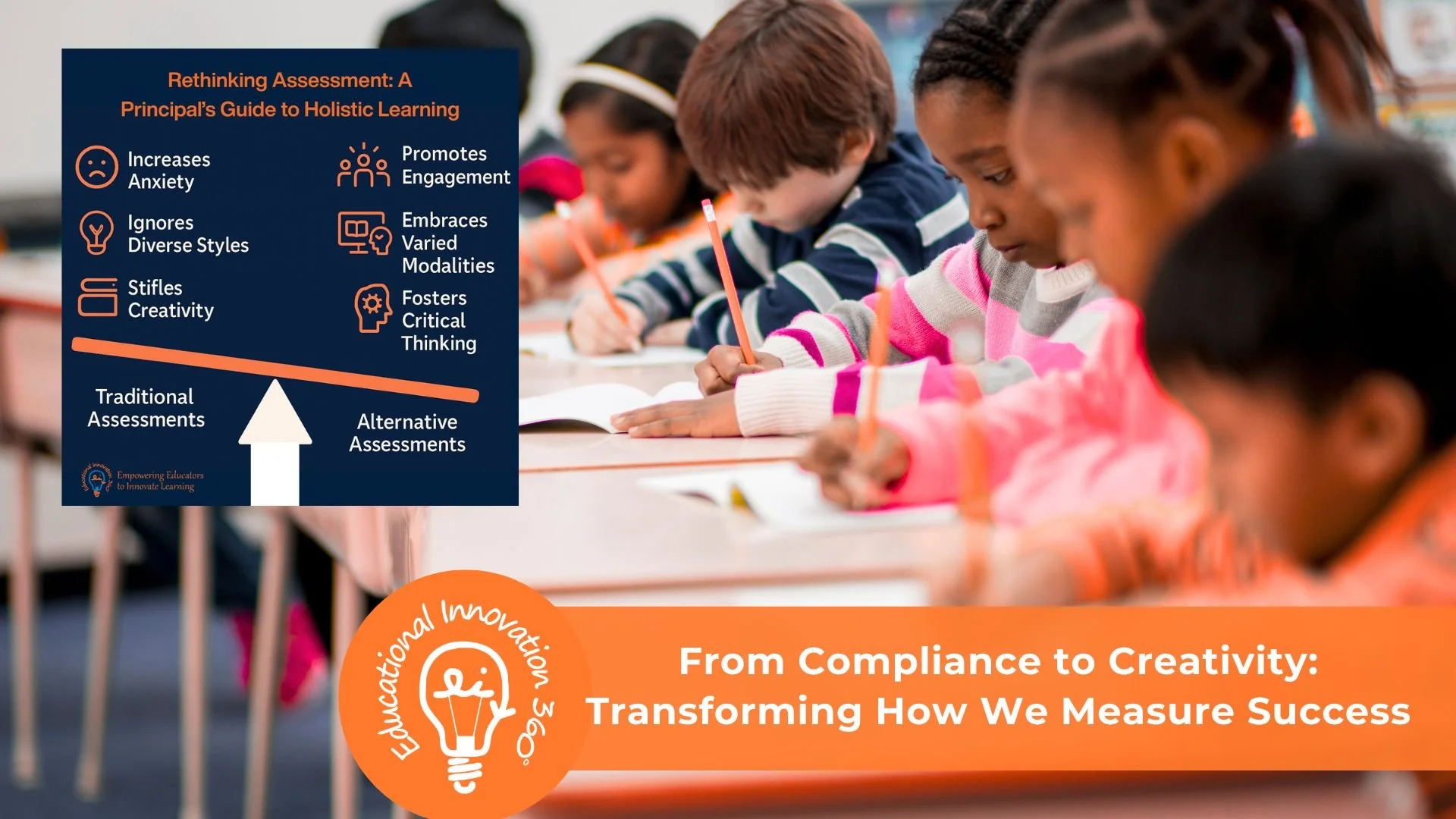Beyond the Ban is written for K–12 school leaders who are navigating the real tension between innovation, academic integrity, and student thinking. Drawing on current research from Harvard, MIT, and leading learning scientists, this piece names what many principals are seeing but struggling to articulate: access to AI is not the issue; cognitive engagement is.
Read MoreDrowning in a sea of interruptions? Stop the blurting before it starts. Discover the research-backed strategies that silence the noise, restore your sanity, and get students thinking before they speak.
Read MoreThe achievement gap isn’t a mystery. It’s an instructional choice. This blog cuts through the noise to name the instructional move that actually moves the needle: active learning. For K–12 principals tired of chasing initiatives that don’t stick, this is a clear, research-backed case for shifting classrooms from sit-and-get to think, talk, and do. The result? Higher achievement, fewer failures, and real progress on inclusion, without burning out your teachers.
Read MoreA practical guide for principals who want to bring AI into their schools without overwhelming teachers. Learn simple strategies, quick wins, and leadership moves that make AI a support system rather than another stressor. This blog shows how to lead confidently while protecting staff trust and instructional quality.
Read MoreGive your teachers the support they deserve and watch your school rise. This approach blends quick coaching moves with practical AI tools so your staff feels energized, not overwhelmed. Strengthen your culture, reduce burnout, and create a team that stays, grows, and leads.
Read MoreK-12 principals are stepping into the most disruptive moment in modern education, yet most schools are dangerously unprepared for the AI revolution already happening in their classrooms.
Read MoreMany school districts are still operating in the dark. Embracing AI: A Roadmap for Transforming a Skeptical School District challenges K–12 leaders to bridge that gap. Explore how visionary superintendents and principals can lead systemic change, even when teachers are uncertain or resistant.
Read MoreToo many new principals are handed the keys but not the roadmap. The Principal Trap exposes how today’s school systems unintentionally set new leaders up to fail—and what can be done to change it. Discover the research, strategies, and systemic shifts needed to transform the first year from survival to success.
Read MoreArtificial intelligence is transforming classrooms, but not all AI tools are vetted or approved by districts. This article explores the rise of Shadow AI and what school leaders must to to protect their data.
Read MoreDiscover how school leaders and instructional coaches are reshaping professional development in 2025 through differentiated, personalized pathways and AI-powered solutions.
Read MoreAI promises efficiency, but what happens when it misjudges a child? In classrooms, unchecked algorithms can fuel bias, erode trust, and harm student learning. This piece unpacks the hidden risks and challenges educators to demand fairness, transparency, and systems that empower rather than undermine students.
Read MoreHow teachers are integrating artificial intelligence into classrooms in 2025 with a focus on ethics, personalized learning, and student engagement. This piece highlights current trends, top AI tools like MagicSchool.ai and Brisk Teaching, and teacher perspectives on balancing innovation with privacy, equity, and human agency.
Read MoreDiscover the 2025 Principal’s Playbook for RTI/MTSS. It’s your guide to effective tiered supports, high-dosage tutoring, AI-powered data tools, and evidence-based strategies that help every student succeed. Learn what works at every tier and how school leaders can drive equity, close learning gaps, and build stronger systems for academic and behavioral growth.
Read MoreYour first day as a school principal sets the stage for the entire year. This blog explores practical, research-based strategies to build a strong, inclusive, and student-centered school culture starting on day one. From fostering relationships and modeling values to co-creating norms and engaging families, discover how intentional leadership can shape a thriving learning environment for all. Perfect for new and seasoned principals looking to make a lasting impact.
Read MoreDiscover how parent engagement drives academic success, boosts social-emotional growth, and builds lasting school partnerships. This research-backed guide equips leaders with actionable strategies—from tech-driven communication to culturally responsive practices—to transform family involvement into student achievement.
Read MoreDay one matters! This blog gives K–12 principals a research-backed, action-ready guide to ensure every student gets home safely on the first day of school—building trust, boosting attendance, and setting the tone for a successful year.
Read MoreEmpowering students to take ownership of their learning involves a balanced approach—combining metacognitive strategies like reflection and error analysis with structured autonomy through student choice and responsibility. So what are you doing to empower students?
Read MoreStudent leadership is the very beginning of school transformation. This is a roadmap on empowering students to lead, which can boost achievement, strengthen school culture, and prepare them for life beyond the classroom.
Read MoreRecent NAEP results reveal that fewer than one-third of U.S. fourth and eighth graders are reading proficiently, spotlighting the urgent need to rethink literacy instruction. This blog challenges the outdated three-cueing system—once popular but now proven ineffective—and advocates for the Science of Reading.
Read MoreReady to move beyond bubble tests and unlock true student potential? This must-read blog challenges K–12 principals to rethink assessment in 2025. Discover why traditional tests are falling short—and how authentic tools like project-based learning, portfolios, and student-led conferences are transforming classrooms.
Read More

